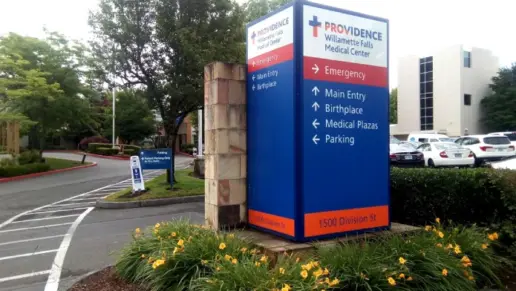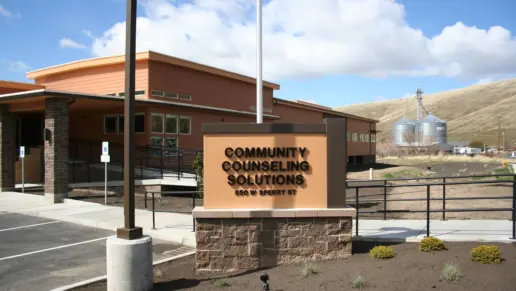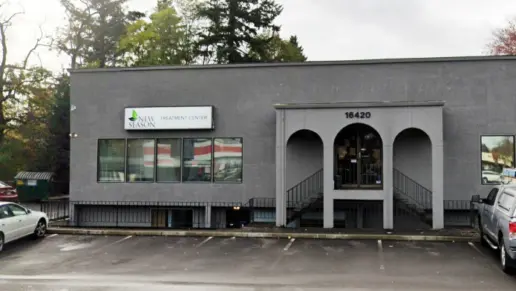The people are rude and unhelpful. The place is in a great area but the people is always angry.
About Serenity Lane
Serenity Lane is a nonprofit, CARF accredited organization with six locations throughout Oregon that offer treatment for substance use and co-occurring disorders. The facility in Bend, Oregon, is an outpatient treatment facility that offers intensive outpatient care in person and through a telehealth option. If detox is necessary, staff can refer clients to their residential treatment center in Coburg. The organization accepts most major insurance plans, including TRICARE Northwest through the Managed Health Network. They have a scholarship fund that offers some limited assistance for eligible clients.
The outpatient program in Bend is a 10 week program. During treatment, clients receive addiction education to learn about substance use disorders. Clients participate in three-hour individual and group therapy sessions three times a week. One of the nice things about the program is they offer morning and evening groups so you can accommodate work and family while receiving treatment. The family is also included during the initial 10 week program via telehealth.
A unique aspect of this program is the follow up recovery support. You’ll have weekly 90 minute sessions for up to 24 months after you complete the 10 week program. The follow up sessions may include your significant other. During the sessions, you’ll work on identifying and managing life stressors to help you better cope with the early stages of recovery.
The Bend facility also has DUII programming. In Oregon, the laws for driving under the influence are different than in many other states. If you get pulled over and are suspected of drunk driving you will be charged with driving under the influence of intoxicants (DUII). This covers any type of impaired driving, including driving under the influence of prescription or other drugs.
Serenity Lane’s DUII programming is offered on Fridays through telehealth. They have a 5:30-7:00 p.m. class and a 7:30-9:00 p.m. class. The facility also provides employer/EAP services and 12 Step participation.
Rehab Score
Gallery
Accepted Insurance


Other Forms of Payment
Private insurance refers to any kind of healthcare coverage that isn't from the state or federal government. This includes individual and family plans offered by an employer or purchased from the Insurance Marketplace. Every plan will have different requirements and out of pocket costs so be sure to get the full details before you start treatment.
Self-pay involves paying for treatment out of your own pocket. You can use savings or credit, get a personal loan, or receive help from family and friends to fund your treatment. If you don't have insurance or your insurance plan doesn't cover a specific program, self-pay can help ensure you still get the care you need.
Financial aid can take many forms. Centers may have grants or scholarships available to clients who meet eligibility requirements. Programs that receive SAMHSA grants may have financial aid available for those who need treatment as well. Grants and scholarships can help you pai for treatment without having to repay.
Medicaid is a state based program that helps lower-income individuals and families pay for healthcare. Medicaid covers addiction treatment so those enrolled can use their coverage to pay for rehab. When a program accepts Medicaid the client often pays very little or nothing out of their own pocket.
Sliding scale payments are based on a client's income and family size. The goal is to make treatment affordable to everyone. By taking these factors into account, addiction recovery care providers help ensure that your treatment does not become a financial burden to you or your family, eliminating one barrier to care.
Military members, veterans, and eligible dependents have access to specific insurance programs that help them get the care they need. TRICARE and VA insurance can help you access low cost or no cost addiction and mental health treatment. Programs that accept military insurance often have targeted treatment focused on the unique challenges military members, veterans, and their families face.
Addiction Treatments
Levels of Care
Treatments
The goal of treatment for alcoholism is abstinence. Those with poor social support, poor motivation, or psychiatric disorders tend to relapse within a few years of treatment. For these people, success is measured by longer periods of abstinence, reduced use of alcohol, better health, and improved social functioning. Recovery and Maintenance are usually based on 12 step programs and AA meetings.
Drug rehab in Oregon offers a full continuum of care for those struggling with addiction. From detox, to inpatient, to outpatient, to aftercare, Oregon residents can find the support they need for recovery. This treatment empowers individuals to replace drug use with positive alternatives and develop a healthier lifestyle.
Many of those suffering from addiction also suffer from mental or emotional illnesses like schizophrenia, bipolar disorder, depression, or anxiety disorders. Rehab and other substance abuse facilities treating those with a dual diagnosis or co-occurring disorder administer psychiatric treatment to address the person's mental health issue in addition to drug and alcohol rehabilitation.
Opioid rehabs specialize in supporting those recovering from opioid addiction. They treat those suffering from addiction to illegal opioids like heroin, as well as prescription drugs like oxycodone. These centers typically combine both physical as well as mental and emotional support to help stop addiction. Physical support often includes medical detox and subsequent medical support (including medication), and mental support includes in-depth therapy to address the underlying causes of addiction.
Substance rehabs focus on helping individuals recover from substance abuse, including alcohol and drug addiction (both illegal and prescription drugs). They often include the opportunity to engage in both individual as well as group therapy.
Programs


Clinical Services
Serenity Lane's nationally recognized Family Program is an educational program that focuses on repairing relationships damaged by years of destructive chemical dependency. Their program is designed to integrate the patient and the family and to supply vital information about how this disease negatively impacts the family system. The Family Program is offered in a 4-weekend series. Attending all the sessions is highly recommended. This program is an integral part of Serenity Lane's Residential Treatment.
Each counselor has a number of patients, who together, form a group. On weekdays, the group will meet each morning and afternoon to explore problems, feelings, changes and conflicts that come up in the treatment process. This is called group therapy and it is a significant part of residential treatment. Patients will be oriented to group and assigned a "buddy" (another patient who is further along in treatment). This person will help explain the rules and ease transition into the group environment.
In individual therapy, a patient meets one-on-one with a trained psychologist or counselor. Therapy is a pivotal part of effective substance abuse treatment, as it often covers root causes of addiction, including challenges faced by the patient in their social, family, and work/school life.
Nicotine Replacement Therapy (NRT) is a way of getting nicotine into the bloodstream without smoking. It uses products that supply low doses of nicotine to help people stop smoking. The goal of therapy is to cut down on cravings for nicotine and ease the symptoms of nicotine withdrawal.
Amenities
-
Residential Setting
-
Private Setting
Accreditations

The Commission on Accreditation of Rehabilitation Facilities (CARF) is a non-profit organization that specifically accredits rehab organizations. Founded in 1966, CARF's, mission is to help service providers like rehab facilities maintain high standards of care.
CARF Accreditation: Yes
Contact Information
920 SW Emkay Drive
Suite 104
Bend, Oregon 97702












